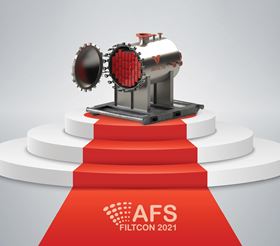Ное . 05, 2024 14:27 Back to list
hepa filter for pharmaceuticals service
HEPA Filters in Pharmaceutical Services Ensuring Product Quality and Safety
In the pharmaceutical industry, maintaining a sterile and controlled environment is not just a regulatory requirement; it is a cornerstone of product quality and patient safety. High-Efficiency Particulate Air (HEPA) filters play a critical role in maintaining these standards by removing airborne particles, including dust, bacteria, and viruses, from the air in manufacturing and laboratory settings. This article explores the importance, functionality, and key considerations of HEPA filters in pharmaceutical services.
Understanding HEPA Filters
HEPA filters are air filters that are capable of trapping a significant percentage of very small particles that other filters might miss. Specifically, a True HEPA filter can capture 99.97% of particles that are 0.3 microns in size or larger. This high efficiency makes HEPA filters essential in environments where cleanliness is paramount, such as cleanrooms, operating theaters, and laboratories.
Importance of HEPA Filters in Pharmaceuticals
1. Contamination Control Pharmaceuticals are susceptible to contamination from various sources, including airborne particles. HEPA filters efficiently remove contaminants from the air, creating a controlled environment that is crucial for the production of sterile products. This is essential not only in the manufacturing of injectable drugs but also for any medication that comes into contact with patients.
2. Regulatory Compliance Pharmaceutical manufacturers must comply with stringent regulations set by organizations such as the FDA and EMA. These regulations often mandate specific air quality standards that can only be met using HEPA filtration technology. Failure to comply can lead to product recalls, fines, or even shutdowns, making the role of HEPA filters critical in maintaining operational compliance.
3. Product Efficacy The efficacy of pharmaceutical products is closely linked to the cleanliness of the environment in which they are produced. Contaminants can compromise the stability and potency of medications. By using HEPA filters to ensure a clean air supply, manufacturers can produce reliable and safe products for consumers.
Functionality of HEPA Filters
HEPA filters operate on a few key principles
- Interception Particles that are carried within the air stream may adhere to fibers in the filter. As air passes through the filter, larger particles have a higher likelihood of colliding with these fibers and becoming trapped.
hepa filter for pharmaceuticals service

- Inertial Impaction As particles navigate through the air, they can be too massive to follow the airstream around a filter fiber and instead collide with it, leading to their removal.
- Diffusion For smaller particles, collisions with molecules in the air cause them to move erratically, increasing the chances of encountering and being captured by filters.
These mechanisms work together to ensure high levels of air cleanliness, making HEPA filters an essential component of any pharmaceutical cleanroom.
Key Considerations for Implementation
When implementing HEPA filters in pharmaceutical operations, several factors must be taken into account
1. Regular Maintenance and Monitoring HEPA filters should be regularly inspected, cleaned, and replaced to maintain their efficiency. Monitoring air quality and pressure differential across the filter can help in assessing the performance and timing of necessary maintenance.
2. Proper Installation HEPA filters must be installed correctly to prevent any leaks that could allow contaminated air to bypass the filtration system. Ensuring a proper seal and installation can significantly enhance the effectiveness of HEPA filtration.
3. Training of Personnel Staff should be trained on the importance of air quality in pharmaceutical environments and the role of HEPA filters. Understanding how to properly maintain and monitor these systems contributes to overall operational success.
Conclusion
HEPA filters are vital in ensuring the quality and safety of pharmaceutical products. By removing contaminants from the air, these filters safeguard the integrity of pharmaceutical processes and comply with rigorous industry regulations. As the pharmaceutical landscape continues to evolve, the role of HEPA filters will remain indispensable, highlighting their significance in protecting public health and advancing industry standards. Proper implementation and maintenance of HEPA filtration systems will ultimately contribute to the development of safer and more effective medication, benefiting patients and the healthcare system at large.
-
China PLMF-1 Auto Sealing Ring Assembly Line Efficient Precision Production
NewsJun.09,2025
-
Premium China 171194 Crinkled Coffee Filter Paper - High-Quality Filtration
NewsJun.09,2025
-
China 1869991 High-Quality Industrial Components Supplier
NewsJun.08,2025
-
Premium Cabin Air Filter Machines - Advanced Purification Systems
NewsJun.08,2025
-
High-Quality Screw Press Sludge Dewatering Machine Supplier & Exporter
NewsJun.08,2025
-
Animal Semen Filter Paper High Porosity & Superior Filtration
NewsJun.08,2025
